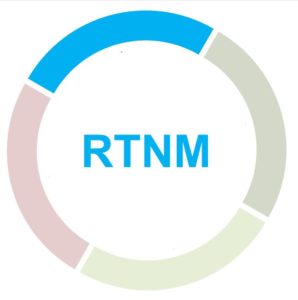
Lactating and/or breastfeeding individuals having a nuclear medicine procedure are counselled regarding breastfeeding
Risks of radiopharmaceuticals for breastfed infants
- Research has shown that the radiation from non-contrast image acquisition in radiography has no effect on breast milk.1
- However, when a lactating individual undergoes a nuclear medicine procedure, there is potential for the infant consuming the milk to be exposed to radiation. This occurs through both the intake of milk and/or external exposure from close proximity to the patient.2–4
- The radiation exposure to the infant varies by the radiopharmaceutical and dose administered for the procedure.2,3
- With few exceptions, less than 10% of the administered dose is excreted in the breast milk.2
- Typical estimates range from 0.3% to 5% of the injected dose.2
Precautions for breastfeeding individuals
- The breastfeeding status of lactating patients within their child-bearing period is established prior to undertaking any procedure.1
- Feeding of breast milk should be interrupted for the time radioactivity is known to appear in breast milk for each nuclide.
- Recommendations for interruption of feeding breast milk for nuclear medicine procedures have been published, with the recommended duration of interruption based on reducing the maximum dose to a newborn infant to less than 1 mSv.3,5
- In most cases, no interruption in feeding breast milk is required to maintain a radiation dose below 1 mSv to the infant.3,5
- Brief interruption (hours to days) is advised for3-5:
- 99mTc-macroaggregated albumin
- 99mTc-pertechnetate
- 99mTc-red blood cells
- 99mTc-white blood cells
- 201TI-Thallous chloride
- Complete cessation is required for lactating individuals undergoing procedures with3-5:
- 67Ga-citrate
- 123I-MIBG
- 123I-NaI
- 131I-NaI
- Lactation should be stopped prior to administration to decrease radiation dose to the breast:
- 2 weeks for 67Ga-citrate 6
- 6 weeks for 131I-NaI 7,8
- In addition, lactating individuals undergoing procedures that employ 99mTc MIBI, 99mTc labeled RBCs and 131I (greater than 111 MBq) are advised to limit close contact with an infant to 5 hours within the first 24 hours post procedure.1,9
- This applies whether the individual is breastfeeding or not.
References
- Mitchell KB, Fleming MM, Anderson PO, et al. ABM clinical protocol #31: Radiology and nuclear medicine studies in lactating women. Breastfeed Med. 2019;14(5):290-294. doi:10.1089/bfm.2019.29128.kbm
- Stabin MG, Breitz HB. Breast milk excretion of radiopharmaceuticals: Mechanisms, findings, and radiation dosimetry. J Nucl Med. 2000;41(5):863-873.
- International Commission on Radiation Protection (ICRP). Radiation dose to patients from radiopharmaceuticals – Addendum 3 to ICRP publication 106. Ann ICRP. 2008;38:1-2.
- Siegel JA. Guide for Diagnostic Nuclear Medicine. Society of Nuclear Medicine; 2001. Accessed August 8, 2020. https://www.nrc.gov/materials/miau/miau-reg-initiatives/guide_2002.pdf
- Kowalsky RJ, Weatherman KD. Radiopharmaceuticals in Nuclear Pharmacy and Nuclear Medicine. 4th ed. APhA Publications; 2020.
- Tobin RE, Schneider PB. Uptake of 67Ga in the lactating breast and its persistence in milk: Case report. J Nucl Med. 1976;17(12):1055-1056.
- Luster M, Clarke S, Dietlein M, et al. Guidelines for radioiodine therapy of differentiated thyroid cancer. Eur J Nucl Med Mol Imaging. 2008;35(10):1941-1959. doi:10.1007/s00259-008-0883-1
- Society of Nuclear Medicine and Molecular Imaging. I-131 radiotherapy. Accessed August 25, 2020. https://www.snmmi.org/AboutSNMMI/Content.aspx?ItemNumber=10563
- Liepe K, Becker A. Excretion of radionuclides in human breast milk after nuclear medicine examinations. Biokinetic and dosimetric data and recommendations on breastfeeding interruption. Eur J Nucl Med Mol Imaging. 2016;43(5):805-807. doi:10.1007/s00259-016-3326-4
Related Posts
-
-
-
Patients are educated regarding the safety of breastfeeding specific to the procedure they are undergoing
